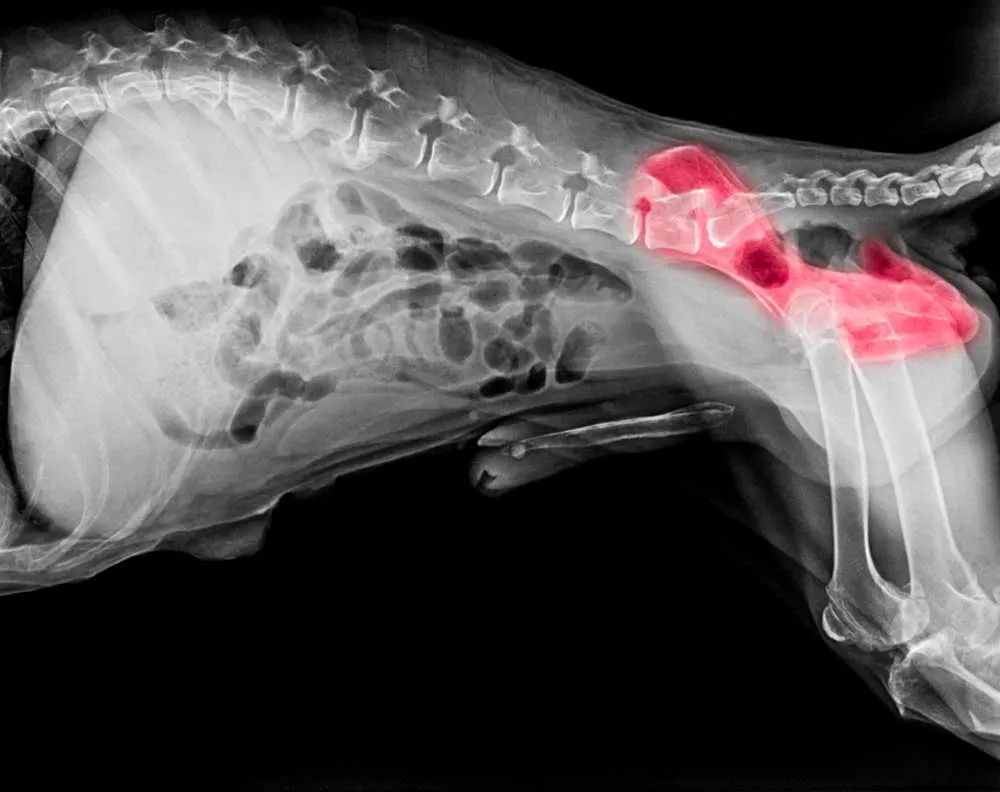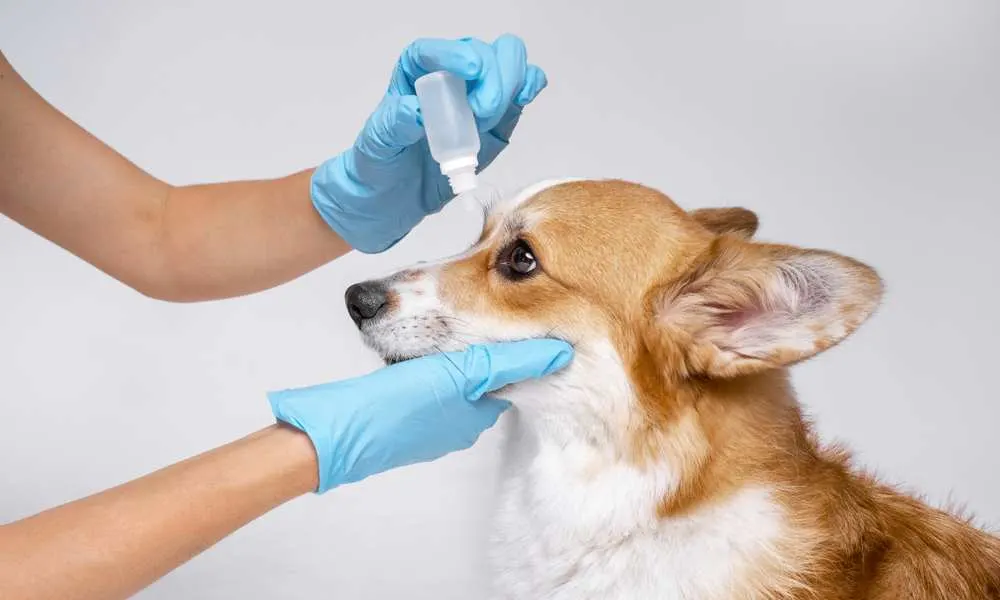Although corgis are one of the healthiest dog breeds overall, you must have asked yourself at least once – what are the genetic diseases in corgis I should keep an eye out for when my pet is at question.
Corgis are not generally prone to many diseases, but the ones they are prone to can cause some serious problems. Some of the most common ones, like hip dysplasia, are common when talking about other dog breeds, and are easily treatable.
I certainly know my life would be so much easier if someone told me which diseases corgis are prone to, so keep reading and pay attention, because some of these might just make your corgi’s life easier.

Degenerative Myelopathy
This disease is maybe the most serious one that your corgi can develop. It’s genetic and it affects the nervous system, brain stem and spinal cord of your pet.
Degenerative myelopathy is genetic, meaning a corgi can develop it only if their parents are a carrier of a certain DNA.
This disease affects the muscles and the posture of your dog, and unfortunately it progresses quite fast. There is no way to stop it or a known cure for this disease.
But there are some genetic tests that you can subject your corgi to in order to find out whether they are at risk of developing this disease or not.
If both of the parents of your corgi are deemed clear on this test, your pet won’t develop degenerative myelopathy. If they are carriers or at risk, there’s a possibility your corgi will suffer from this disease.
If your corgi’s tests show that it’s in danger of developing it, you should keep and eye out for some indicators like limb and muscle atrophy.
As I’ve said, there’s no cure for this disease as of now, but there are some treatments that will make your corgi’s battle with this disease quite easier.

Hip Dysplasia
Hip dysplasia is maybe not the toughest disease on this list, but most certainly is one of the most common ones.
This disease is known to be a threat to many dog breeds, including corgis. There’s not much variations in hip dysplasia when talking about other breeds, it almost always manifests itself in similar form with similar symptoms.
This disease affects development of the hip joint, thus causing loss of function of the said joint. This does not happen overnight, but slowly which means it can be detected in time.
Early detection means that you can prevent it from getting worse for some time, but you can’t stop the dysplasia without a surgical intervention.
If this is handled in time, your dog can make a full recovery depending on the age and a state of your dogs health.
Some puppies as young as five months can exhibit some hip dysplasia symptoms, which means their hip joints aren’t in the best condition. Remember, this is not an old dogs disease and can affect any breed at any time.
A surgical procedure that is performed on a dog with hip dysplasia is a relatively common one, and it doesn’t bring a lot of risk with it.
Depending on the state of disease the cost for this operation can be between $1000 and $6000. The earlier you notice the symptoms, less complicated and less pricey the surgery.
Some of the most common symptoms of hip dysplasia are:
- Loss of joint function (this can be more or less noticeable depending on the stage of the disease)
- Limping (this occurs when hip dysplasia takes its toll)
- Space between legs may appear wider than usual
- The leg may be rotated outward
If you see any of these symptoms you should immediately take your corgi to the vet.
One more thing that can help are regular checkups at the vet, because they can see signs of hip dysplasia much easier than you.
There are also anti-inflammatory medication treatments that can help your corgi when dealing with hip dysplasia.
Learn More: Corgi Health Problems: Most Common Diseases In Corgis

Obesity
You all know that corgis are probably the cutest dog breed on the planet. Their little legs and long bodies with the little butt on the end are recognisable from any distance.
Sadly, these dogs if not trained properly can develop obesity very quickly. They are (generally speaking) very active working dogs, but they can become extremely lazy as well.
If not trained and taken running or any other activity, they will adapt a bad kind of lifestyle without any resistance.
Their love for eating doesn’t help this situation. Corgis love to eat and when paired with an inactive lifestyle, it causes some severe consequences.
Obesity can lead to high blood pressure, a fatty liver or even some kidney problems. All of these should not be messed with as it can pose serious problems in your dog’s life.
It goes without saying any of these also shortens your furball’s life expectancy by a bunch, and that’s the last thing any dog owner wants.
This is the easiest of all the diseases to prevent. All it takes is regular exercise, a good feeding routine and some quality food.
As I’ve said before, corgis generally love to be active, so that won’t pose a problem. A good feeding routine and diet is completely your responsibility as an owner. This isn’t something that’s hard to figure out, and you can get lots of help from your dog’s vet.
Obese dogs develop obesity throughout a long period of time, so this is also easy to notice and prevent in time.
If your corgi starts getting a little chubby, you can always try feeding it less food and train them more often, and this will give results in 99% of the cases.
Dogs that are older and are obese may need a little bit more help. Some special food that your vet can recommend can be helpful, or maybe a running strip can be a great addition to your dog’s daily routine.
Nevertheless, this disease is both caused and prevented by dog owners, and this is what makes it different from the other ones on this list. Keep this in mind next time you debate yourself on whether you should give your dog another treat or not.
Keep your dog healthy and active in order to prevent obesity. It’s not hard and can be a great exercise for both you and your pet.
See Also: Do Corgis Need Their Glands Expressed?

Progressive Retinal Atrophy
It’s important to say there’s no known cure for PRA. Sadly, this disease is fairly common when talking about corgis.
In the expected lifespan of a corgi that is from 11 to 13 years, they tend to develop PRA in the later stage of their life.
This disease attacks the photoreceptors in the dog’s eyes. It’s not painful at all, but it inevitably leads to blindness. Some of the symptoms your dog might show and you might need to look for if you suspect your corgi has PRA are:
- Very reflective eyes
- Overly dilated pupils
- Night blindness (this is the biggest sign that there’s something wrong)
If you see any of these, it’s imperative you take your pet to its vet as soon as possible.
Knowing that there’s no known treatment for this disease, the best you can do is educate yourself on how the PRA develops and the things you can do to make your dog’s life much easier when developing this progressive retinal atrophy.
From all of the genetic diseases in corgis, this is maybe the most heart-breaking one, this is because your dog is fully functional and happy, the only thing that makes it different is that he can’t see.
But, you are not to worry, corgis don’t let this get in the way of living a happy and fulfilled life. So, if this happens, you should follow the steps of your pet and enjoy your time together as much as possible regardless of the disease.
Genetic Diseases In Corgis – To Sum Up
Generally speaking, corgis are fun and loving animals that in most cases live a healthy life. Sometimes they can develop some problems over time, but nothing that will stop them from being an endless source of love and fun time.
As you’ve already read, there are some things that you as an owner can prevent, and that there are some instances where you’ll feel helpless.
Remember, there’s always something that you can do that will make your corgi’s life easier, especially if it develops some of these conditions that can’t be treated at this time.
Learn More: What Do Corgis Usually Die From? How Can You Help Them?

